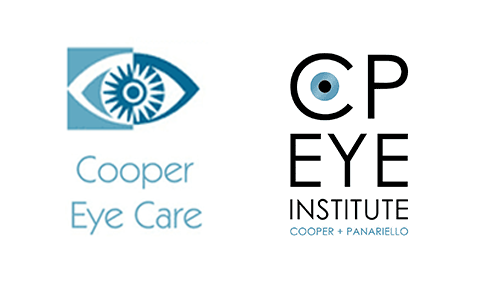Diabetic Eye Disease Q & A
What is Diabetic Eye Disease?
Diabetic eye disease refers to a host of eye problems that often occur as a complication of diabetes. Uncontrolled diabetic eye disease can threaten the long-term health and function of your eyes and lead to severe vision problems or blindness. It may come as a surprise, but diabetes is actually one of the leading causes of irreversible blindness.
Diabetes causes damage to your body’s blood vessels, which leads to poor blood circulation in various parts of the body. Certain tissues in your body are more sensitive to decreased blood flow than others. The eye in particular is very sensitive to reduced blood flow and can lead to vision changes and/or blindness.
What Types of Diabetic Eye Disease Are There?
Some of the different forms of diabetic eye disease the team at Cooper Eye Care help diagnose and treat include:
- Diabetic Retinopathy: Diabetic retinopathy results from damage to the blood vessels in your retina. Elevated blood sugar causes the blood vessels walls to become more permeable resulting in leakage of blood or fluid from the vessels into the layers of the retina. Because the retina is the inner lining of the eye that allows us to process light and see images, this type of leakage is the most common cause of vision loss, vision impairment, and blindness among people with diabetes.
- Cataracts: Cataracts are a condition that results in the clouding of your eye’s lens. Adults with diabetes are 2-5 times more likely to develop cataracts. In addition, diabetic patients are more likely to develop cataracts earlier in life.
- Glaucoma: Adults diagnosed with diabetes are twice as likely to develop glaucoma. Glaucoma is a category of eye disease that is defined by progressive damage to the optic nerve resulting in loss of peripheral vision. If untreated, central vision can be affected as well.
What Are My Treatment Options for Diabetic Eye Disease?
At Cooper Eye Care, we have the technology to detect diabetic retinopathy at its earliest stages and the equipment to diagnose glaucoma and cataracts. We coordinate care with the primary care doctor so that they can help patients manage their blood sugar to prevent further progression. We also coordinate care with retinal specialists who may treat severe diabetic retinopathy with laser photocoagulation, anti-VEGF injections or other treatment modalities.
Glaucoma can be effectively treated with a prescription management of glaucoma eye drops, while cataracts can be treated either with corrective lenses or surgery.
To find out more about diabetic eye disease and available treatment options, call Cooper Eye Care or schedule an appointment online today.
Cooper Eye Care (Manhattan)
- Monday
- 9:00 AM - 5:00 PM
- Tuesday
- 9:00 AM - 5:00 PM
- Wednesday
- 9:00 AM - 5:00 PM
- Thursday
- 9:00 AM - 5:00 PM
- Friday
- 9:00 AM - 3:00 PM
- Saturday
- Closed - Closed
- Sunday
- Closed - Closed
Cooper Panariello Eye Institute (Brooklyn)
- Monday
- 8:30 AM - 5:00 PM
- Tuesday
- 8:30 AM - 5:00 PM
- Wednesday
- 8:30 AM - 5:00 PM
- Thursday
- 8:30 AM - 5:00 PM
- Friday
- 8:30 AM - 3:00 PM
- Saturday
- Closed - Closed
- Sunday
- Closed - Closed
View All Of Our Eye Care Services
The team of doctors at Cooper Eye Care in the New York City, with offices in Manhattan and Brooklyn serving the surrounding areas of Upper East Side and Dyker Heights, are friendly, professional, and focused on care.
